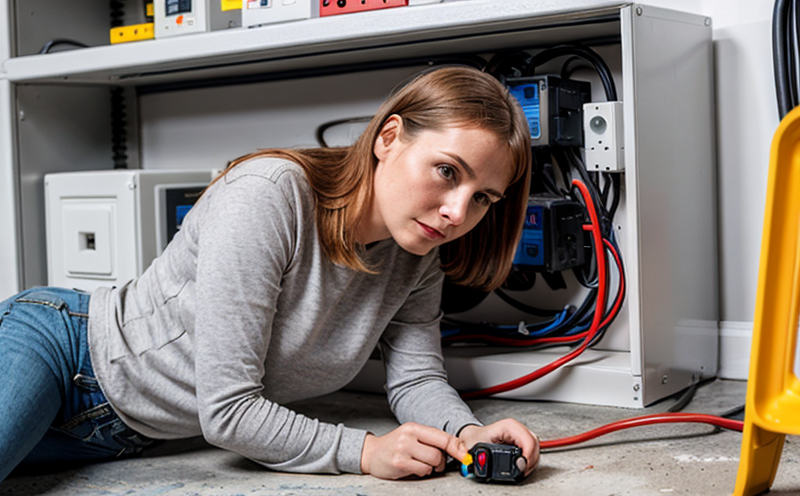Certification for Safety in Electrical Products: A Comprehensive Guide
The world of electrical products is vast and diverse, encompassing everything from household appliances to industrial machinery. With the increasing complexity of these products, ensuring their safety has become a top priority. Certification for safety in electrical products plays a crucial role in protecting consumers, workers, and the environment from potential hazards.
What is Certification?
Certification is the process of verifying that a product meets certain standards or regulations. In the context of electrical products, certification involves testing and inspecting the product to ensure it conforms to established safety requirements. This process ensures that the product operates safely, efficiently, and effectively.
Benefits of Certification
The benefits of certification for safety in electrical products are numerous:
Consumer Protection: Certification ensures that products meet minimum safety standards, protecting consumers from potential harm.
Increased Credibility: Companies that obtain certifications demonstrate their commitment to quality and safety, enhancing their reputation and credibility.
Reduced Liability: By meeting established safety standards, companies reduce the risk of liability in case of accidents or injuries related to their products.
Understanding Safety Standards
Safety standards for electrical products are developed by regulatory bodies, such as the International Electrotechnical Commission (IEC) and the National Electrical Manufacturers Association (NEMA). These standards cover various aspects of product safety, including:
Insulation: Ensuring that electrical components are properly insulated to prevent shock or electrocution.
Grounding: Providing a safe path for electrical currents to flow in case of an overload or fault.
Overheating: Preventing products from overheating, which can lead to fires or burns.
Electrical Safety Certifications
Several certifications are available for electrical products, including:
1.
UL (Underwriters Laboratories): A leading testing and certification organization that covers a wide range of electrical products.
2.
ENEC (European Conformity): A certification mark indicating that a product meets the essential requirements of EU directives.
3.
cUL (Canadian UL): Similar to UL, but for products intended for use in Canada.
Compliance with Regulations
Manufacturers must comply with regulatory requirements when designing and testing their electrical products. Some key regulations include:
IEC 60950-1: Standard for the safety of information technology equipment.
UL 508A: Standard for industrial control panels.
Certification Process Overview
The certification process typically involves:
1.
Design Review: A review of the products design to ensure it meets established safety standards.
2.
Testing and Inspection: Conducting tests and inspections to verify that the product conforms to safety requirements.
3.
Documentation: Preparing documentation, such as user manuals and instruction sheets.
Certification for Specific Industries
Certain industries have specific certification requirements:
Medical Devices: Compliance with standards like IEC 60601-1.
Aerospace Industry: Compliance with standards like AS9100.
Automotive Industry: Compliance with standards like SAE J1739.
Common Myths and Misconceptions
There are several common myths and misconceptions surrounding certification for safety in electrical products:
Myth: Certification is a one-time process.
Reality: Certification involves regular testing and inspections to ensure ongoing compliance.
Myth: Certification guarantees product safety.
Reality: While certification reduces the risk of accidents, it does not eliminate all potential hazards.
Frequently Asked Questions
1. What is the difference between UL and ENEC certifications?
UL certification covers a broader range of electrical products, while ENEC certification focuses on products intended for use in the European market.
2. How often do I need to recertify my product?
Recertification intervals vary depending on the specific certification and industry requirements.
3. Can I self-certify my product?
While some industries allow self-certification, it is generally recommended to work with an independent third-party testing organization to ensure unbiased results.
Conclusion
Certification for safety in electrical products plays a vital role in protecting consumers, workers, and the environment from potential hazards. By understanding the benefits of certification, safety standards, and compliance requirements, manufacturers can design and test their electrical products with confidence, ensuring that they meet or exceed regulatory expectations.

































